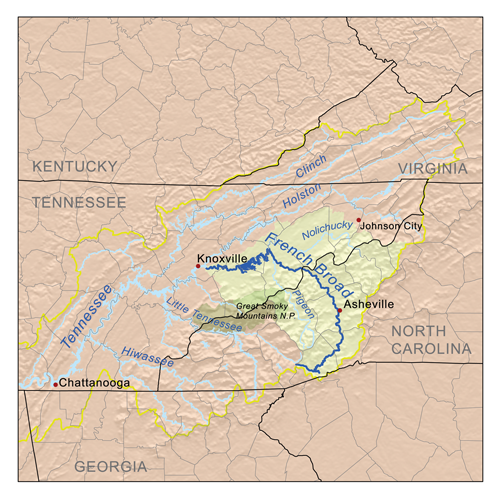French Broad River
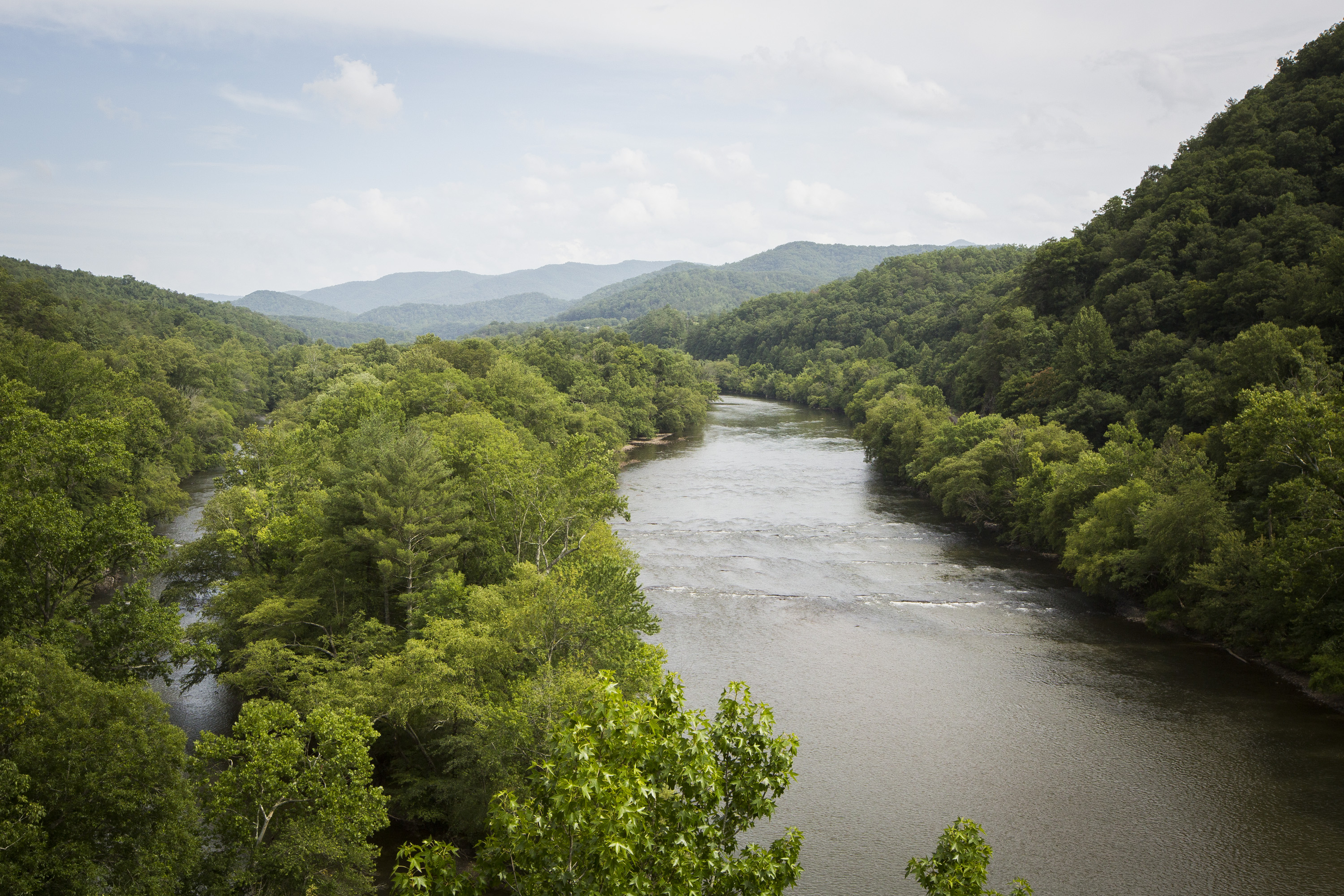
The French Broad has connected communities across the smokey mountains for a long time– with estimates placing the river at over 250 million years old, earning it the title of third oldest in the world. Over its rich history the river has been vital for Cherokee communities in fishing, travel, and cultural practice, provided the first hydroelectric power to Western North Carolina and the world-famous Biltmore Estate, and even now drives local economies that thrive from river recreation while providing critical habitat for aquatic species. Today, the river flows through 8 counties and the heart of several communities, including the city of Asheville.
The French Broad’s headwaters originate in Rosman, North Carolina, and flow north 219 miles before joining the Holston to become the Tennessee River. The tributaries that feed the French Broad join the river to over 4000 miles of streams and creeks, connecting the mainstem to rich and diverse habitats for aquatic life.
The French Broad River Basin’s historic forests and floodplains have been heavily altered by development, pollution, and dams. Even with these impacts, the basin still supports a wide diversity of warm and cool water species, making it popular for anglers and wildlife enthusiasts. Popular sport fish like trout and bass are joined by rare, threatened, and endangered species, such as the Appalacian Elktoe Mussel and Bog Turtle.
America’s Most Endangered Rivers®
The Rivers of Southern Appalachia were named as one of America’s Most Endangered Rivers® of 2025. The French Broad is one of the rivers that makes up this listing due to the severe impacts from Hurricane Helene.. The Rivers of Southern Appalachia weave a rich tapestry, vital to the region’s culture and economy, providing clean drinking water to over 2 million people throughout more than a dozen communities from Newport, Tennessee to Charlotte, North Carolina. But Hurricane Helene devastated these rivers and communities with record flooding and landslides. Federal, state, and local partners have already allocated resources to the region, but there is a long road to recovery and preparation for the next storm in the years to come. Together, we must continue to restore the rivers, invest in communities, and remove unsafe dams to strengthen the region so people and businesses can thrive despite increasingly extreme weather.
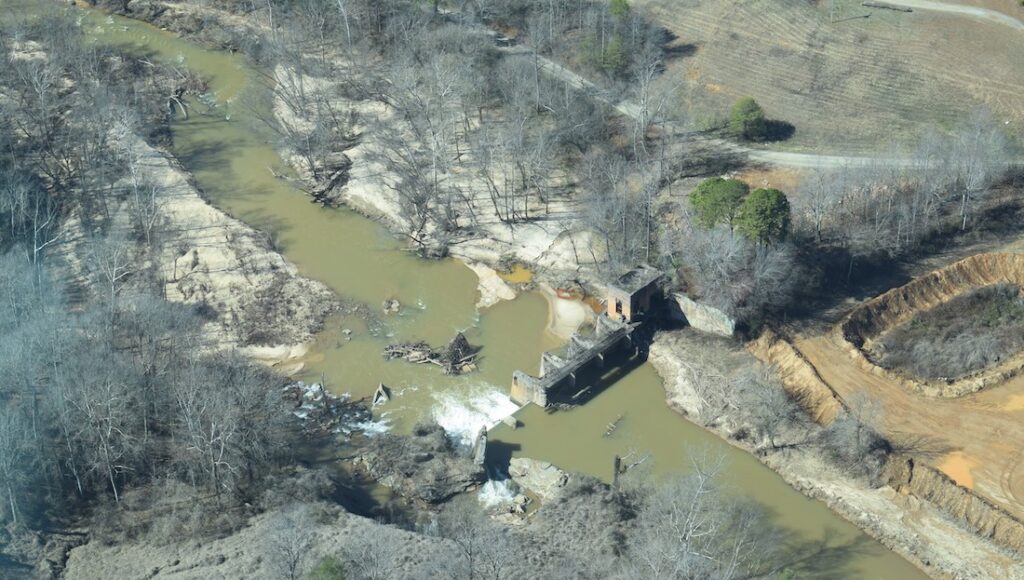
Speak up for the Rivers of Southern Appalachia
Call on state and federal leaders to provide funding for the restoration of these rivers and the surrounding communities to restore access to clean, reliable drinking water once again.

Freshwater Mussels – What You Need to Know
Freshwater mussels literally breathe water clean. They filter out pollutants and create healthy river habitat for thousands of other animal species. Without them, our rivers would be dirtier and devoid of life. But freshwater mussel populations are crashing. We need to help these important river purifiers before it’s too late.
A 2021 Study by the French Broad River Partnership puts the economic impact of the French broad river at 3.8 billion annually, supporting businesses, creating jobs, and drawing tourism. The basin further provides a vital source of drinking water for over a million people.
Dams on French Broad River and its tributaries impede both the health of aquatic ecosystems and stifle the recreation opportunities so vital to the local economy. According to the Southeast Aquatic Resources Partnership, over 1,100 dams disconnect aquatic habitat in the French Broad River basins. Today, three lowhead hydropower dams remain on the mainstem of the French Broad. American Rivers is working with our partners in the region to develop evaluations on the usefulness of maintaining these dams, with their associated costs and benefits, into the future.
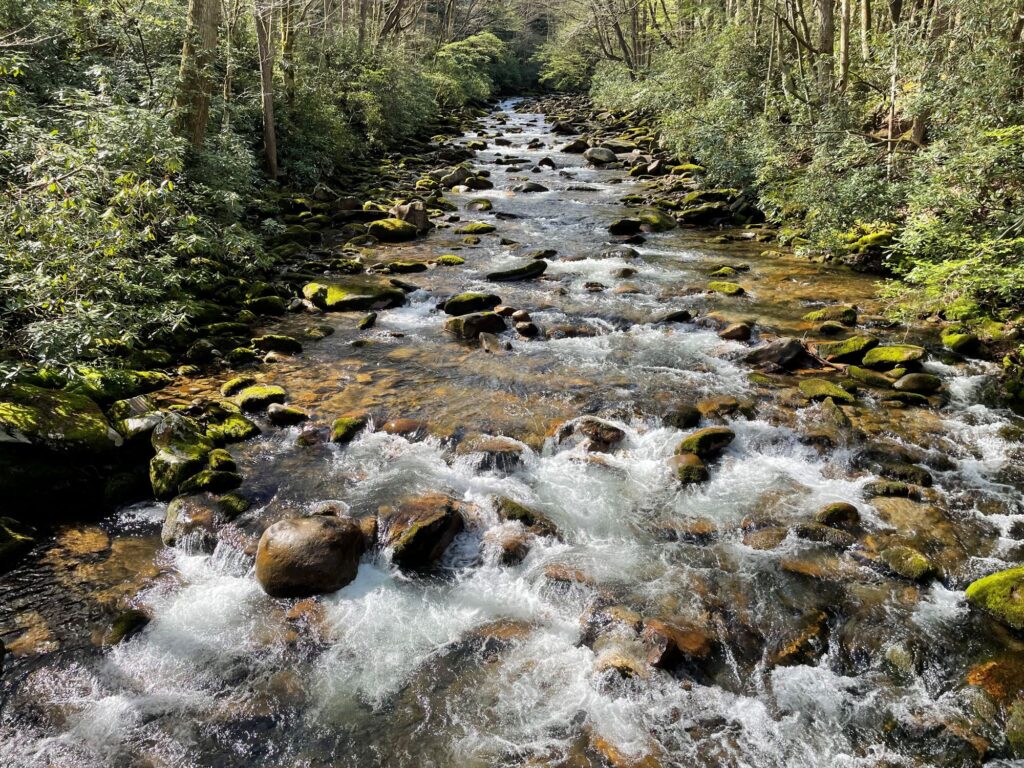
Let's stay in touch!
We’re hard at work in the Southeast for rivers and clean water. Sign up to get the most important news affecting your water and rivers delivered right to your inbox.
Hurricane Helene
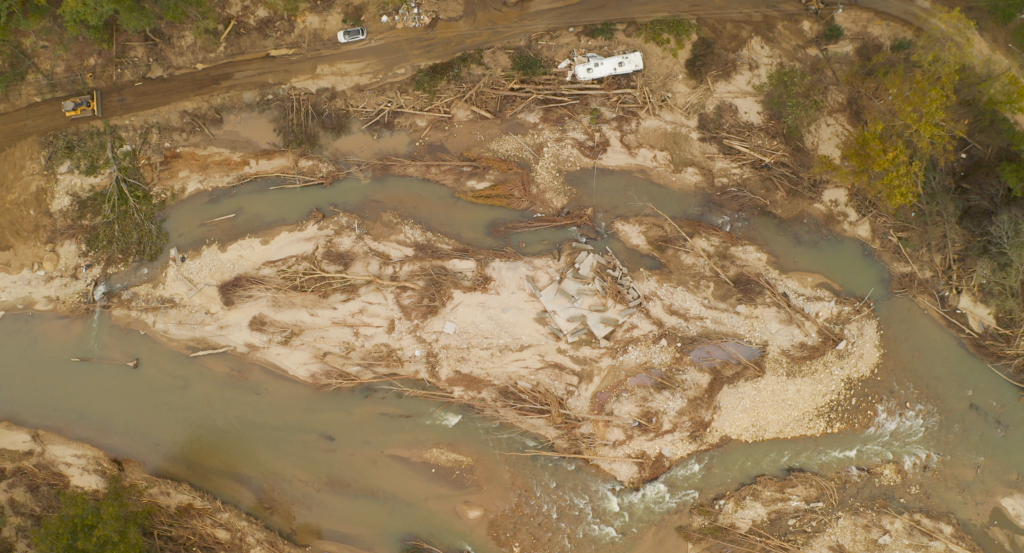
In September 2024, Hurricane Helene left deadly and devastating damage across the southeast. The catastrophic flooding resulted in record high flows in the French Broad River and its tributaries. The immense volume of water altered the path of the rivers, undermined the safety of many of the 1,500 dams in the region, while pulling in unfathomable amounts of structural debris which if left unattended will pose serious long-term threats to drinking water supplies and all of the people and wildlife who depend on our rivers. American Rivers has, and continues to advocate for restoring our storm-damaged rivers like the French Broad and removing failing infrastructure throughout the basin, with sights on a more resilient future.
Partners in the Watershed
RiverLink promotes the environmental and economic vitality of the French Broad River and its watershed for all.
MountainTrue champions resilient forests, clean waters, and healthy communities in the Southern Blue Ridge. MountainTrue maintains information on safe recreation on the French Broad River at https://frenchbroadpaddle.com/.

